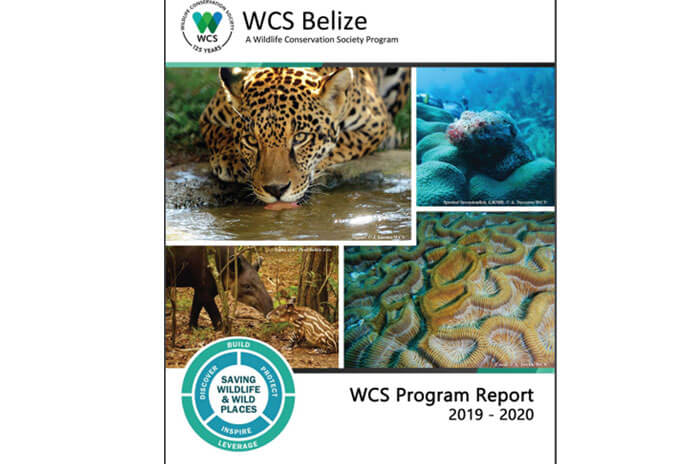BELIZE CITY, Thurs. May 20, 2021–The Wildlife Conservation Society (WCS) has published their Program Report for 2019-2020, in which the organization presents a plan of action for the preservation of Belize’s natural resources in the years ahead. The general mission of the WCS is to conserve and protect the interconnected lands and waters of Belize through science, conservation, action, education, and efforts to inspire people to value nature.
The 2019-2020 report highlights the WCS’s plans to target sustainable natural resource management, which will be done through their continued support of the implementation of the new Fisheries Resources Act and through informed preservation of our fisheries resources, based on years of data collection. The second objective in the plan is to strengthen ridge-to-reef management, which will be achieved by “increasing our scientific understanding of coastal systems, considering interconnected local impacts of climate change and resilience.”
The WCS will also focus on reducing wildlife trafficking by arming customs and other border control officers with forensic tools such as Xylotron for timber identification and rapid DNA test kits to identify shark and fish species so that CITES-listed species can be pinpointed. The Society also plans to continue to advocate for the passing of the Trade in Endangered Species (CITES) Bill 2021. Finally, the report also highlights the WCS’s objective to target improved protected area management by pursuing the designation of an additional 672 square kilometers of marine areas as replenishment zones, formalizing the Maya Forest Corridor (MFC), and supporting national development strategies, including Belize Horizon 2030, and Belize’s Growth and Sustainable Development Strategy.
The report goes further to provide in-depth research findings regarding the protection of Belize’s marine systems, the protection of wildlife and support of resource management, and protection of fisheries resources through innovation. It also illuminated the society’s previous efforts to expand the role of women in fisheries, and to protect the critically endangered river turtle by leveraging the Glover’s Reef Research Station and including other institutions and stakeholders in collaborative action.

